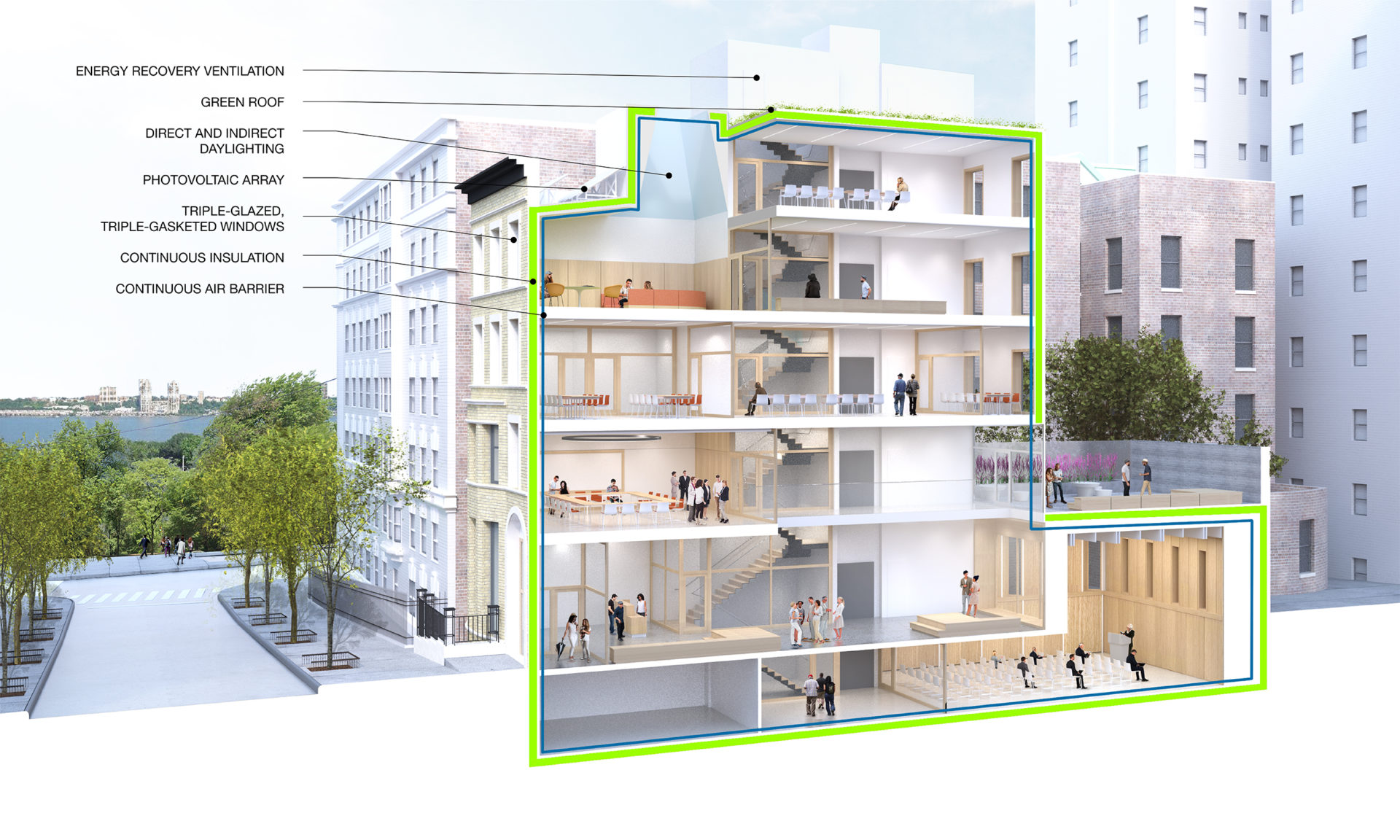
MBBlog

What the Pandemic Can Teach Us About the Urgency of the Climate Crisis
by John Mealy
The world is currently facing two global crises that are presenting designers with new challenges as we rethink how we inhabit our cities and buildings. The coronavirus pandemic and global warming are both changing the way that we think about the spaces where we live and work, but while the immediate threat of COVID-19 is a ubiquitous subject of discussion and speculation, it is climate change that will cause more extensive and long-lasting damage if left unchecked. As we struggle with the means of controlling the virus, and the consequences that has for our day-to-day existence, we are presented with an analog to the climate crisis on a shorter timeline and can look to one crisis for insight into the other.
If we wait to act until we are feeling the effects of climate change, it will be too late. The arrival of coronavirus was preceded by months of speculation and very little action. By the time we responded with a flurry of cancellations and closures, the momentum of infections was already building to the extent that our resources were pushed to the breaking point. The frequency and severity of floods, wildfires, and other extreme weather events should tell us that the momentum of climate change is building and is a warning that we need to prepare lest we be overwhelmed. Climate change is not a problem that can wait for a more convenient time or a better solution. We need to deal with it now.
Human activity has a significant and pervasive impact on the climate and the environment. We have known this for some time, but the current lockdown has provided dramatic examples of this fact. Skies over cities have become clearer, distant mountains have come into view, wildlife has reclaimed waterways and empty streets. This is an indication of how far-reaching our effect is on the ecosystem, but it is also a hopeful sign that human activity can change and that changes in our actions can start to repair the environmental damage that has already been done.
Global threats require global responses. We have seen that COVID-19 does not respect borders, that infections continue to spread despite travel restrictions, and that ballooning worldwide demand for critical resources combined with a loss of production has led to a chain reaction of shortages. Climate change is no different. A warming world of rising sea levels and catastrophic storms will disrupt supply chains, spread new diseases, displace populations, and increase food shortages. Only if we accept climate change as a common risk and a shared responsibility will we be able to avoid the worst-case scenarios for the future.
We are all threatened by these crises as our health, well-being, and economic security are put at risk, but the consequences of these threats are not shared equally. As we see in the case of COVID-19, mortality is highest among disadvantaged populations, and low-wage and hourly workers bear a higher burden as they are confronted with the choice of enduring dangerous conditions or going without a paycheck. Suffering due to climate change is similarly asymmetrical: droughts and floods disproportionately affect the poor, who lack savings and access to credit and frequently live in high-risk areas, and extreme temperatures compound health risks for populations with limited access to healthy food, medical care, and adequate housing. In finding our way out of these crises it is critical that we don’t leave behind those who are most in need.
Building construction and operations is the most significant contributor to global warming, and among the easiest to reduce. We have the knowledge and technology to make both new and existing buildings far more energy efficient than they are today, shift the trajectory of climate change, minimize operating costs, improve occupant health, and build a new economy based on renewable resources and performance-based design. But to do so we will need to learn the lessons of the current crisis and understand the urgency of the situation we are all in together.
Perhaps the greatest lesson we can learn from the pandemic is that leadership matters. Health professionals and scientists have spoken clearly and honestly about the urgency of the moment and the best of our public officials have taken their recommendations seriously and responded with policies that have yielded results. As we look to restart the economy, we need to do so in a way that addresses climate change. It is our responsibility as architects to help lead the way.
At MBB, we see this moment as an inflection point, an opportunity to reevaluate our priorities, and to redouble our efforts to maximize efficiency and sustainability. Community and collaboration are at the heart of everything we do. As we serve our clients, we must also serve the communities we all belong to, from the local and personal to the national and global. Although this is a dark time, we are finding lessons for ourselves and our industry that point the way to a better future.